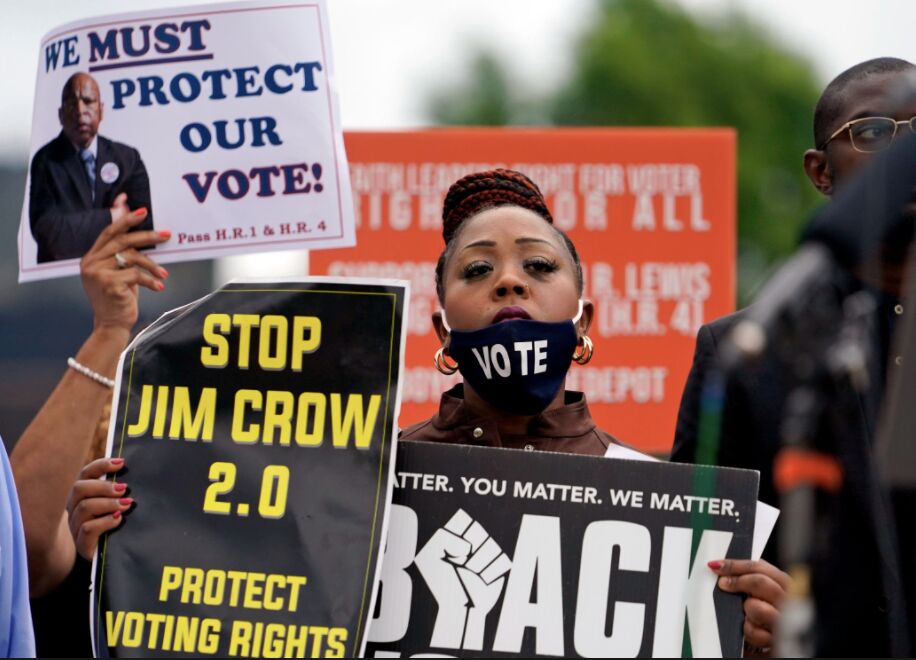I, too, am America: Black History Month and the Importance of Voting Rights
From the erasure of Black people from history books to the practices of Jim and Jane Crow, 2.0, African Americans are constantly striving to combat oppression on all fronts due to the ever present root: Racism.

Amid disinformation and misinformation, access to the voting booth has become increasingly more difficult for this part of the American constituency. Nevertheless, amid and in spite of these struggles, generations of African Americans have countered efforts to dilute their voice and vote. From Reconstruction to “Souls to the Polls” campaigns, Black Americans have moved in ways that affirm their role in making democracy real.
Voting rights are the cornerstone of ensuring that we all have equal political access for opportunity and impact. However, there have been attacks in nearly every generation to roll back this right for certain segments of the American populous. From restrictive voter ID laws to gerrymandering, state legislatures throughout the country have sought to make it more difficult for Black eligible voters to participate in electorate. Just last year alone, the United States Supreme Court found the state of Alabama in violation of the groundbreaking Voting Rights Act of 1965 stating that it had drew unconstitutional district maps that intentionally diluted the voting power of African American communities.
Our United Methodist Social Principles are direct in their encouragement to actively participate in the voting process. Under the Political Community, the Social Principles state, “The strength of a political system depends upon the full and willing participation of its citizens. The church should continually exert a strong ethical influence upon the state, supporting policies and programs deemed to be just and opposing policies and programs that are unjust.” (2016 Social Principles ¶164.B)
To better prepare voters for upcoming elections, the Board of Church and Society created a two-pager for Black Methodist for Church Renewal that contains a ten-step outline for how to best engage with websites to access more detailed information related to their local context. This form also applies to all communities within their context in the United States. When we all have fair access to the ballot box, we can carry out our principles of peace and justice. Furthermore, when we engage in the political economy of this country, we can vote based on our faith, values, and principles.
Rev. Dr. Martin Luther King, Jr, once shared that “the ultimate tragedy is not the oppression and cruelty by the bad people – but the silence over that by the good people.” To transform our world, we must use our voice and vote to be a part of creating the society we desire, one that affirms the dignity of all, ensures fair opportunity for all, and fulfills the promises of the U.S. constitution by all.
This Black History Month, plus the days, weeks and years to come, make it your duty to educate, empower and engage in the election process and voting season. Your participation is what makes this democracy a reality.
The Rev. Kendal L. McBroom is the director of Civil and Human Rights at the General Board of Church and Society.